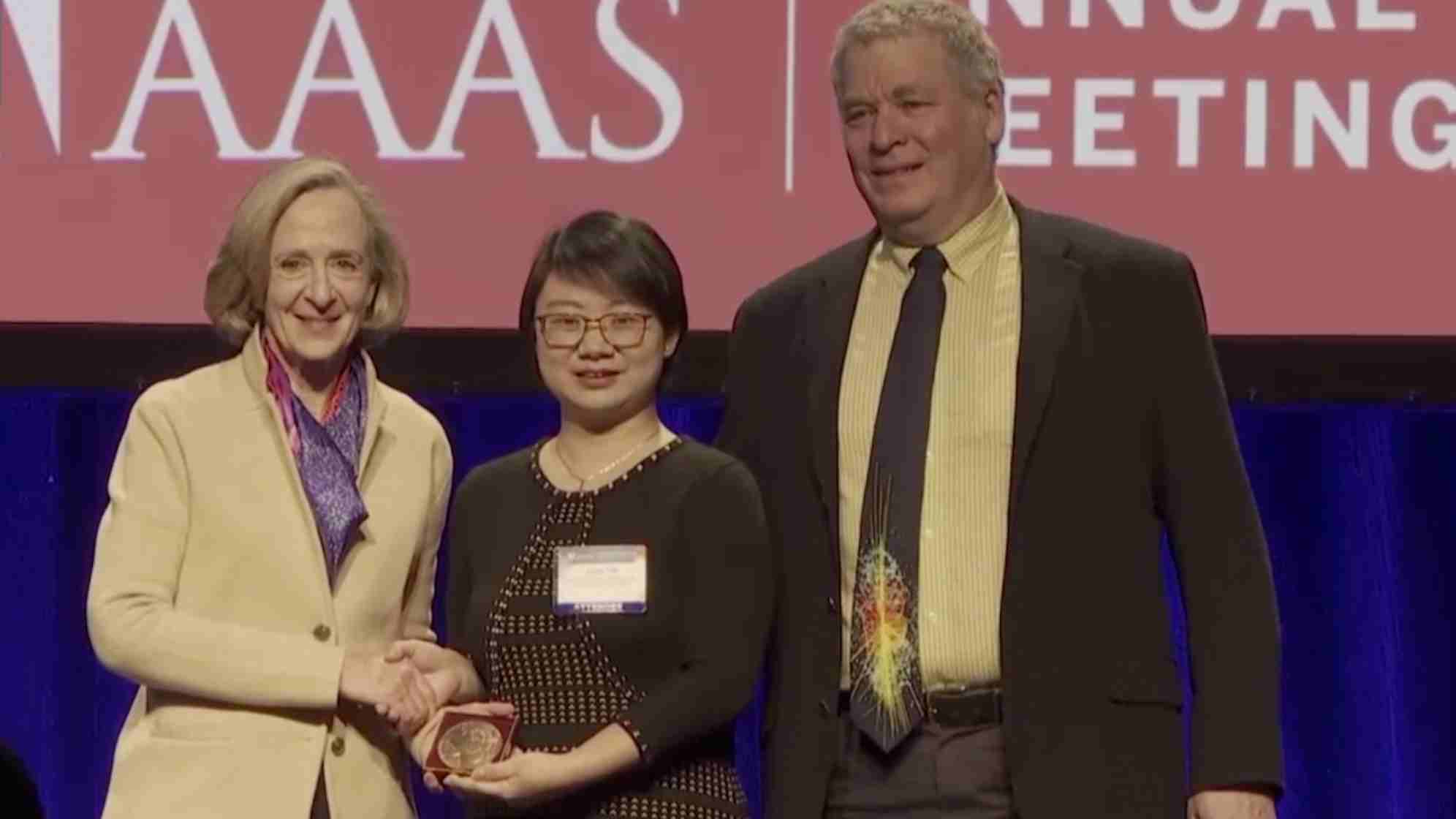
Technology
23:10, 16-Feb-2019
Lead researcher misses Cleveland Prize ceremony due to visa problem
CGTN
01:31

The 2018 Newcomb Cleveland Prize, one of the oldest awards in the U.S., went to a team of 34 Chinese physicists dedicated to quantum communication, however, without the attendance of the lead researcher at the award ceremony due to a visa problem.
The Cleveland Prize is awarded each year for one of the most academically valuable and influential research papers published in Science, and China's satellite Quantum Experiments at Space Scale (QUESS), or Micius, led by Pan Jianwei, was given the award this time as it laid the groundwork for ultra-secure communication networks of the future.
This is also the first time that a team of scientists from China has won this important honor in over 90 years since the prize was established by the American Association for the Advancement of Science (AAAS).
But regrettably, Pan failed to attend the event as his visa is under "Administrative Processing," which is incompatible with the theme – "Science Transcending Boundaries" – of the 2019 AAAS Annual Meeting.
"The science should be boundary-less. That's the reason for the meeting, and certainly the reason for the Science magazine that we have researchers from many many countries around the world and collaborative teams in science," said Jeremy Berg, editor-in-chief of Science. "That was an unfortunate event that, you know, really is frustrating in light of the transnational, transboundary aspect of science."

SITEMAP
Copyright © 2018 CGTN. Beijing ICP prepared NO.16065310-3
Copyright © 2018 CGTN. Beijing ICP prepared NO.16065310-3